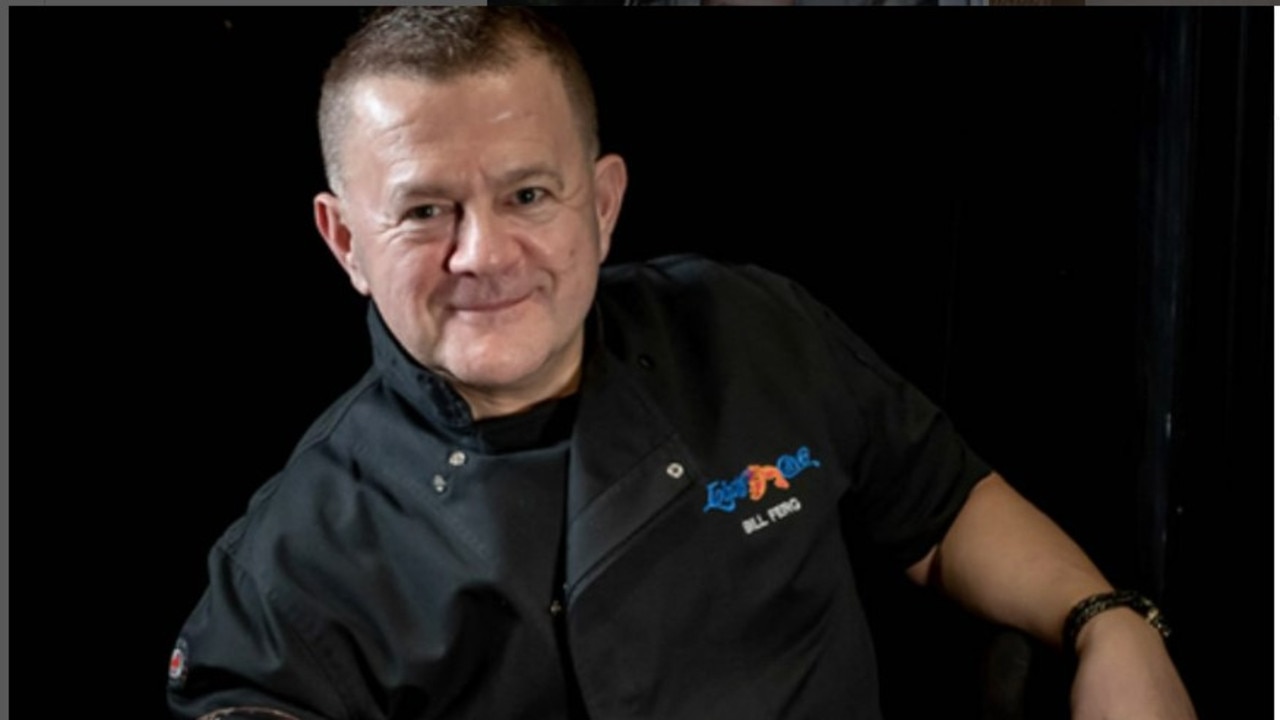Beating BRCA2 breast cancer: Why Corinne Gebert doesn’t regret mastectomy
After watching her sister succumb to cancer, Corinne Gebert says a decision to remove her own “perfectly good breasts” was empowering, not brave.
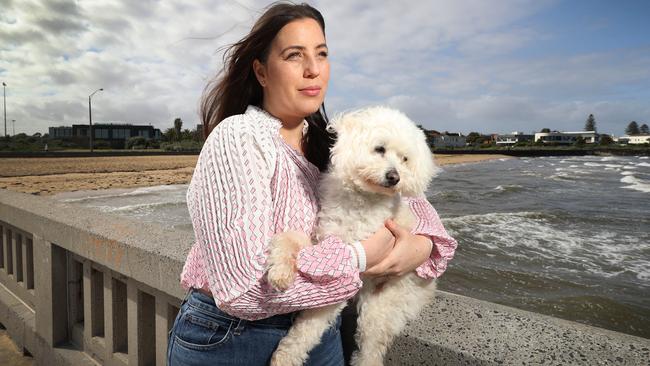
News
Don't miss out on the headlines from News. Followed categories will be added to My News.
Corinne Gebert still reflects on the bittersweet opportunity she has had to reduce her heightened risk of cancer and preserve her future fertility, when her sister was robbed of that opportunity.
With just three years between them, sisters Rachelle and Corinne Gebert each found out just months apart that they carried an increased risk for breast and ovarian cancers.
After their shock BRCA2 gene mutation diagnosis, the Melbourne siblings — led by big sister Rachelle — quickly clicked into gear, making plans together for more babies before drastic yet necessary breast removal surgery.
Now, six years after receiving the news that she carried an inherited family cancer gene, and just five months after Rachelle’s passing at age 41, Corinne is continuing what they both started.
The 38-year-old is pushing on with the advocacy work they started together and, after recovering from risk-reducing surgery, she is taking steps to protect her dreams of motherhood.
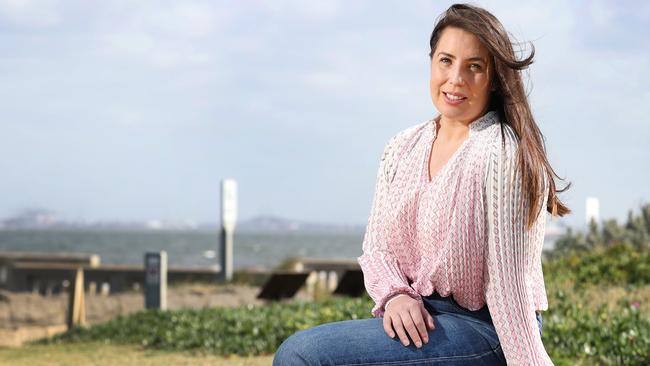
“Rachelle, we call her ‘vice-mum’. She’s such a responsible, loyal person. She was considerate, researched and meticulous, and A-type. Everything she did was to the best. Other people just flocked to her. That’s what I found at the funeral,” Corinne said.
“There were people that were friends with her from kindergarten. The stories that we heard about how she would walk into a room – and she was beautiful – people would not only want to speak to her, but be her friend, and were her friend for so long.
“As a sister, she is the person you look up to and you want their approval. It wasn’t in a judgmental way, but everyone went to her for advice.
“She is the voice of reason, she would give you perspective.
“She was the adviser for everything. She was the fashion adviser, she was the career adviser, the boyfriend adviser. I would often say to partners, ‘don’t worry about my parents, you have to impress her’.
“I miss her constantly. She was by my side when I went through the surgery (mastectomy) and when I started on the egg freezing side. I’m conscious these are things she never got to do.”
The sisters had known that their paternal grandmother had died from breast cancer at the age of 40.
In 2015 a distant cousin was diagnosed with a breast cancer that carried a genetic mutation, and the wider family was informed.
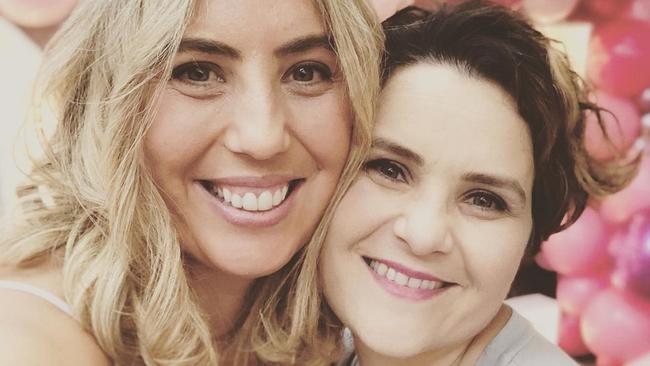
Rachelle was already in a high-risk cancer screening program, but Corinne had been told — incorrectly — by a GP in her mid 20s that she didn’t need to worry about extra surveillance because the breast cancer was on her father’s side.
At a family meeting, their father revealed he had tested BRCA2 positive. This bumped up his own risk of developing breast cancer to 7 per cent, and increased his chance of prostate cancer.
Corinne, Rachelle and their two younger siblings had a 50 per cent chance of inheriting this faulty gene.
It would increase their lifetime risk of breast cancer from 12 per cent, for the average woman, to as high as 69 per cent, as well as raising their risk of ovarian cancer to 17 per cent.
“In typical style, Rachelle went and educated herself. She went to the library. She organised for the counselling and the test. I wasn’t too sure. It was all new to me. My little sister ran out of the room. My brother was indifferent.”
Rachelle tested positive to carrying the BRCA mutation. Corinne’s positive result came a few months later. They relied on each other and confided in each other during this difficult time.
For a long time after the genetic diagnosis, Corinne couldn’t look at her chest.
“I would not make eye contact with my breasts in the mirror,” she said.
“I hated them. It was like, why are you doing this to me?”
“You feel a little bit different once you know (your genetic risk). You feel vulnerable. There is another level of worry added to your daily life. Life changes forever from that point.”
The genetic diagnosis initially buoyed the pair; they felt empowered by the knowledge and keen to tick off some more life plans before having a risk-reducing mastectomy.
For Rachelle, this was trying for a third child, a longed-for daughter.
For Corinne, her priority turned to finding a partner, getting pregnant and being able to breastfeed, before saying goodbye to her natural breasts.
But when Rachelle was diagnosed with breast cancer the next year in 2016, these plans began to crumble.
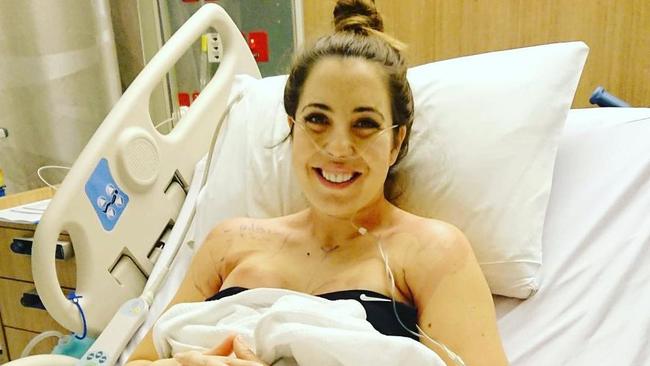
When not long after it was discovered that the cancer had spread to her bones, the sisters’ joint shot at a second chance instantly evaporated, sending the pair down two very separate paths.
“How could it spread that quickly? She was undergoing high-risk screening,” Corinne said.
“That was the point I when went, no, no more waiting, I need to have a preventive double mastectomy. This is happening now. The facts are right when they say you have an increased risk.
“Rachelle wasn’t pushy, but she was encouraging because of the fact that I had a chance.”
On the day of her double mastectomy, Rachelle and one her sons arrived at the hospital to give Corinne good luck presents. She still treasures the pillow case embellished with “You Got This”.
“She was very proud that I was taking my perfectly good breasts (and) removing them to beat this thing,” she said.
“She told me she thought I was very brave.
“I don’t think I was brave. It was something that I had to do. I think because I felt in control of the decision, it empowered me. My sister didn’t have that opportunity.”
For two years a new type of drug, called PARP inhibitors, kept Rachelle’s cancer at bay.
It was around the time when the treatment could no longer block the way cancer cells repair themselves, when Corinne started steps to preserve her fertility under the care of Associate Professor Kate Stern from Melbourne IVF.
The BRCA2 mutation also increases the chance of ovarian cancer, a risk that prompts many women to consider having their ovaries surgically removed in their 40s or after having a family.
“I’ll start the conversation with these women, asking: ‘Tell me how you feel about the things you’ve discovered and what are your priorities?’ Prof Stern said.
“It’s important to still make sure they’re aware of all options. There are some young women who say, I don’t think I ever want to have children now I know this. That might be because they don’t know they can do genetic testing to remove the risk of passing on the mutation.
“I’m gratified in the last 10 to 15 years there has been an increasing awareness about the importance of fertility. Most young women are going to survive their cancer and be cured. Therefore they’ve got the right to have a normal life, like everyone else.”
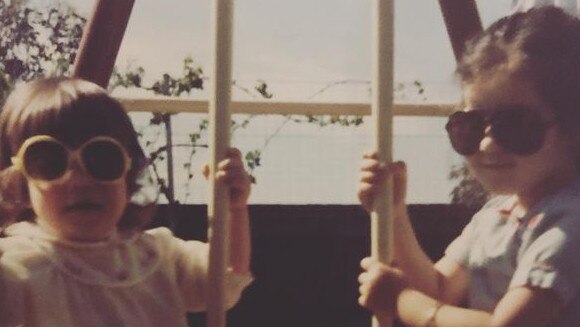
While Prof Stern said the next frontier was being able to genetically test a woman’s eggs for their cancer risk — a breakthrough she was hopeful would be possible in the next 10 years — in the meantime only embryos, the fertilised eggs, can undergo genetic screening.
This means for single women, such as Corinne, there is an added stress of not knowing if the eggs she is storing following an IVF cycle will be usable.
So far she has frozen 19 eggs from two rounds of IVF.
“It’s always been with me. I’ve always wanted to be a young mum. I wanted to look after children. I like playing and educating. I love learning, and I just want to show and share.
I’ve got a lot of love to give,” she said.
“Egg freezing is my insurance policy. I’m hopeful about it.”
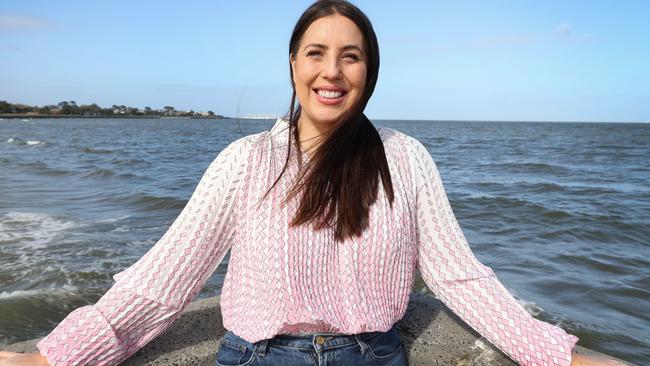
It is this hope and feeling of empowerment that drives Corinne as she continues the advocacy work the sisters started, through their Instagram account The Faulty Titty Committee and as an ambassador for Bright Pink Lipstick Day next Friday, September 17.
The sisters were ambassadors for the event in 2017, which is run by charity Pink Hope to raise money for its work helping women assess and manage their risk of breast and ovarian cancer.
“Her advocacy work will be her legacy. We wanted to share our story to help others.
“I really want them to feel like they’ve got sisters (via our Instagram), that are not going to judge you, but support you and advise you. That’s what Rachelle and I had.
“That’s a special bond between sisters. That’s what we are – all of us. We let each other do it in our own way.
“We want people to share their health history and stories so they are informed and empowered, and so when they go to the doctor and something’s not quite right, they’re taken seriously.
“We don’t want families scared or fearful to share their story. It’s not a stigma.”



